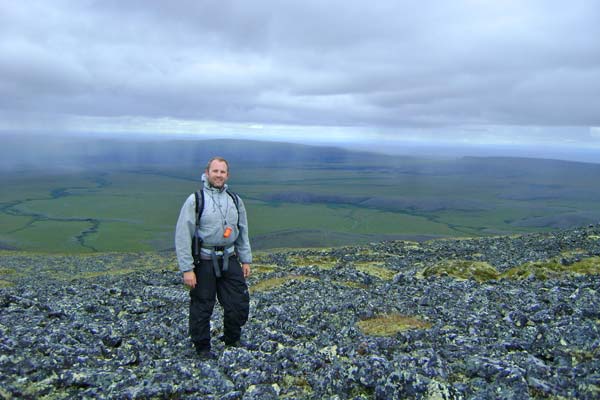
Finding the magic mushroom: a PhD candidate's story
Published: March 26, 2013
Once upon a time, Dylan Gordon, an anthropology PhD candidate, spent a year living in the wilderness with wild mushroom and plant pickers.
When he returned, he wanted to share their experiences. So, when he heard about the Storytellers Challenge put on by the Social Sciences and Humanities Research Council of Canada (SSHRC), he created a three minute-long audio piece.
That decision had a happy ending: he won $3,000 to go to the next round of competition at the Congress of Humanities and Social Sciences in Victoria, British Columbia in June.
Gordon starts his story by highlighting one of the elements of his research on wild foods that he finds enchanting: that moment when a treasure hidden deep in the woods is found.
“The white matsutake mushroom grows underground. The pickers can tell where one is from 20 metres away, it’s like magic,” says Gordon. “They just know it in their bodies, from years of experience. I wanted to show that skill and dedication, and also the excitement and awe that everyone feels when they find one. Every time, it never gets old.
 "That’s reason number one why people love this work, this primordial thrill with finding something in the woods.”
"That’s reason number one why people love this work, this primordial thrill with finding something in the woods.”
His tale goes on to lament how pickers have “patches” of land that are like a home they return to time and again. But sometimes they’ll find it’s disappeared.
“They know every tree in there,” he says. “They don’t even bring a compass. But the next year they’ll go back and it’s gone, clearcut. They’re stoic about it, they feel loggers need to make a living, too. But they’ve just lost something really important, in an instant. It’s pretty sad. What was once a beautiful, meaningful place is now an ugly mess.”
Gordon’s goal was to inform people about some of the challenging issues around environmentalism and sustainable foods.
“I wanted to look at the contradictions of what different people think is ethical and necessary in life, and how they strive to achieve that,” he says. “If we want to know how to live a better life, we should consider what people think will make their lives good and the actions that they take to get there. We live in a time when the terms for judging what’s good and bad, right and wrong, often seem to come down to matters of calculation rather than empathy and care.
"Storytelling can remind us of the real lives behind our decisions and what’s most important in the end.”
Gordon says he's thrilled to be one of the 25 students who will go to the next round of the Storytellers Challenge. And he’s excited to explore his passion: where research and storytelling collide.
“Stories are what make life meaningful, and they’re the best way to inform, persuade and inspire,” he says. “Scholars need to have the freedom to pursue what seems crucial to them, to tell their own stories. But it’s also important to connect that work to what matters to our communities and society in general. We need to be able to explain why what we’re doing is meaningful, even if it’s as simple as a new sort of story that makes life a little bit richer. I think that’s really what the academic endeavor is about: making life richer.”
At the Congress of Humanities and Social Sciences, Gordon and his 24 peers will present their stories. Five will be selected to attend the world Social Sciences Forum in Montreal next fall.
To hear an audio clip of his three-minute story, visit Gordon's web site. You can also follow him on Twitter @KnowWildFood.



